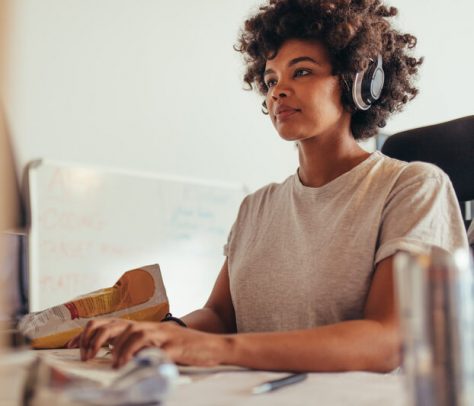This website uses cookies so that we can provide you with the best user experience possible. Cookie information is stored in your browser and performs functions such as recognising you when you return to our website and helping our team to understand which sections of the website you find most interesting and useful.

Schools opting for remote education
With the coronavirus pandemic looming across the country, many universities and schools are looking for safer options to continue their students’ education. In an effort to slow the spread of the virus among student populations, many are choosing to close the campuses for live education starting directly after Spring Break. This means remote education for thousands of students. With coronavirus spreading, what accessible education look like?
Materials must be accessible
It will be of paramount importance to provide accessible content for these remote classes. Assignments, materials, testing, and communication all must be accessible for all students. This style of remote learning will be new for many students, and for some, it will be unusable without considerations to make all the materials accessible.
What does this mean for professors and teachers?
Use accessible learning management platforms. Use accessible file formats. Federal law requires your school to maintain accessibility for all students, and all students deserve their education to continue unabated by this looming health crisis. The Office of Civil Rights of the Department of Education fields hundreds of complaints annually. Many more complaints may be triggered if care isn’t taken to provide the same access to class information and materials to all students.
Remediate inaccessible PDFs
Documents converted to PDF formats (the most widely used and easily secured document format across most platforms) must be accessible PDFs. Be aware that files created in accessible formats can become inaccessible if saved to PDF. They will likely require remediation. All elements of these digital files must be tagged so they are accessible for people using assistive technology. Headings, links, lists, and tables all must be properly tagged. Images and diagrams require detailed and appropriate alt text. For more information on remediating PDFs, check out this overview: What is PDF Remediation?
Videos and live lectures
Close caption all videos. Any lecturers presenting live or recorded lectures should ensure that any deaf or hard of hearing students have access to captioning or an ASL interpreter. Be sure to review any auto-captioning used, as many of the speech to text engines used to create them can make errors.
Other accessibility considerations
As with printed materials, digital materials should have correct color contrast. Use appropriately sized, sans serif fonts so that students with dyslexia, color blindness or low vision can read the material.
Make sure your text is properly spaced and organized logically, using headings to break up the material.
Collaborate with assistive technology users
Not sure how to accomplish lessons normally done visually or hands-on? Speak with your assistive technology students about techniques and ideas bringing the information across. Many students and instructors with disabilities have great solutions to work around their barriers and may have ideas that will work for students accessing information remotely for the first time.
Not sure where to begin addressing these accessibility issues? Contact Equidox for help.
We can also provide PDF remediation for educational materials.
Tammy Albee
Tammy Albee | Director of Marketing | Equidox Tammy joined Equidox after four years of experience working at the National Federation of the Blind. She firmly maintains that accessibility is about reaching everyone, regardless of ability, and boosting your market share in the process. "Nobody should be barred from accessing information. It's what drives our modern society."
